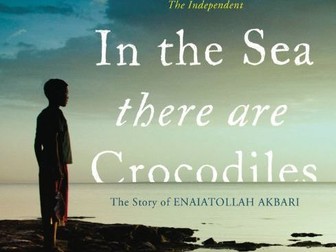In The Sea There Are Crocodiles guided reading activities
This is a whole school literacy resource that could be adapted for an English SoW or for small group reading. The resources here were designed to be used in tutor period with Y9, so the pre-reading activities are aiming to be around 15-20 minutes each. They cover a range of topics about the big ideas of the story - being a refugee, seeking asylum, inequality and humanity.
The guided reading power point has page references for the copy of the novel that we were reading but plenty of pause points to reflect on Einat’s journey. There are plenty of images to complement the unfamiliar language and places referenced in the book.
I really hope you enjoy the resources and the book itself - it is a fantastic way of introducing KS3 to the real problems young people across the world face in their home countries. If you like the resources, please review!
